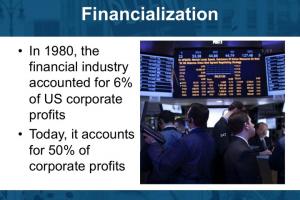Global Left Midweek – January 15, 2025
Portside
 Piketty's radical and largely on-target critique of contemporary capitalism, the reviewer says, was mostly greeted with hostility by the economics establishment, when not simply ignored, stonewalling Capital in the Twenty-First Century, so it would not have the impact on economics research agendas that it merits, particularly in explaining inequality — in effect a dead zone in mainstream economic analysis. The reviewer thinks much can be gleaned from Piketty's work.
Piketty's radical and largely on-target critique of contemporary capitalism, the reviewer says, was mostly greeted with hostility by the economics establishment, when not simply ignored, stonewalling Capital in the Twenty-First Century, so it would not have the impact on economics research agendas that it merits, particularly in explaining inequality — in effect a dead zone in mainstream economic analysis. The reviewer thinks much can be gleaned from Piketty's work.
 Unions must expand beyond narrow bargaining to challenge those who hold wealth and power at the highest levels. Most unions are accustomed to bargaining with their direct employers, as they have done for decades. But the financialization of the economy has rendered that structure obsolete. In order to win for workers, unions need to take their demands directly to those who actually have the money and control. They can often be found on Wall Street.
Unions must expand beyond narrow bargaining to challenge those who hold wealth and power at the highest levels. Most unions are accustomed to bargaining with their direct employers, as they have done for decades. But the financialization of the economy has rendered that structure obsolete. In order to win for workers, unions need to take their demands directly to those who actually have the money and control. They can often be found on Wall Street.
Spread the word